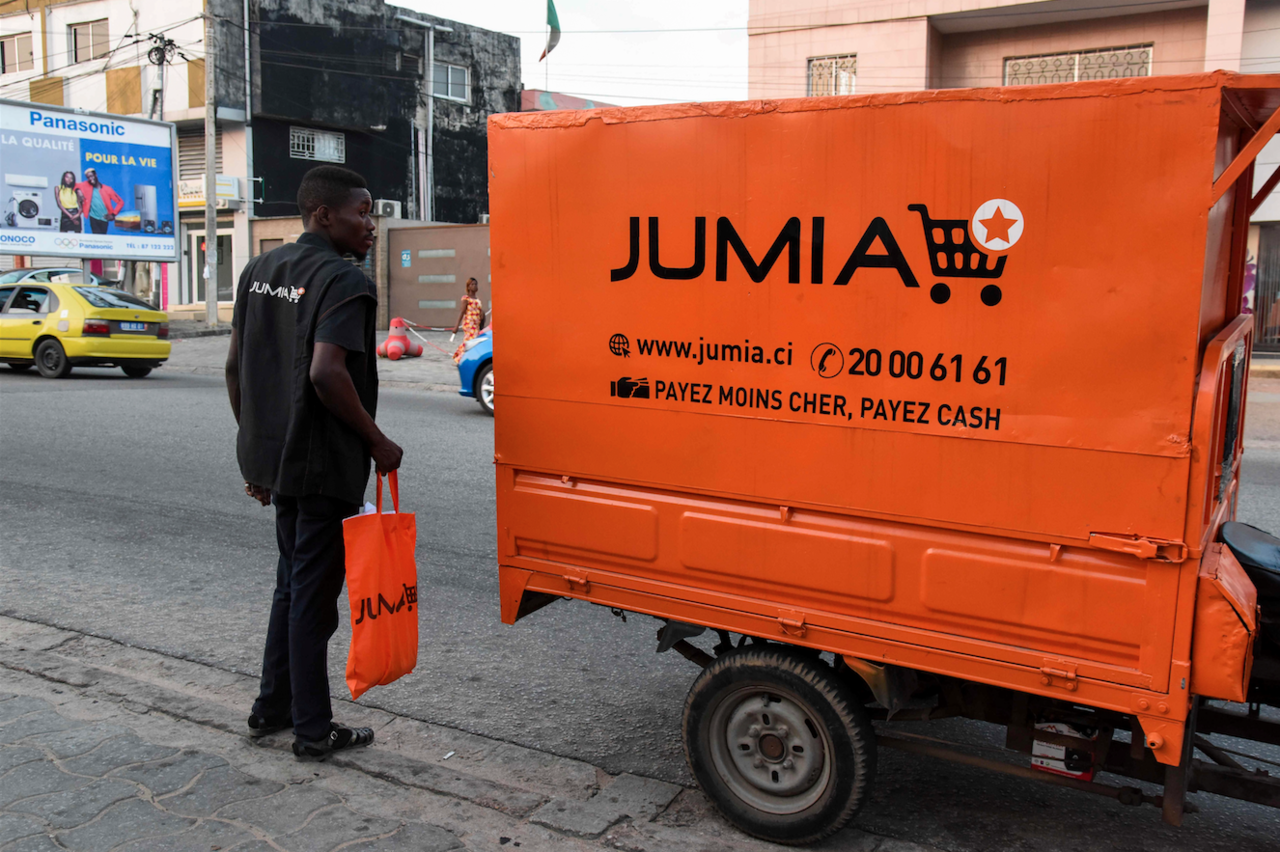Jumia pulls off a decent first quarter despite challenges from COVID-19 pandemic.
Jumia, the Africa focused ecommerce company has announced its first quarterly report [PDF] for 2020. After surviving a difficult 2019, the online retailer was looking to rebuild in 2020 and strengthen its path to profitability.
However, the COVID-19 pandemic has made a serious dent on the global economy, threatening a global recession and having a toll on Jumia’s African markets.
Yet, the retailer has managed to endure a decent quarter. It posted revenue of $31.79 million for Q1 2020 from 6.4 million ecommerce orders. This is a 6% decline from the $34.1 million it recorded in Q1 2019.
Jumia is losing less money
Jumia is finally seeing a notable decrease in its operating losses. In the first quarter of 2020, its operating losses dropped for the first time in six quarters. Its losses stood at $47.4 million in Q1, which is lower than losses from both the previous quarter ($69.2 million) and Q1 2019 ($49.4 million).
Jumia’s staggering losses last year were due to compensation tied to its IPO listing. The retailer paid over $40 million in share-based compensations following the successful IPO in April 2019.
But in 2020 it plans to rein in all spending and optimise its portfolio. That strategy might be paying off.
GMV growth and portfolio optimisation
Meanwhile, Jumia’s gross merchandise value (GMV), an important growth indicator for ecommerce companies, took a hit. The GMV is the gross value of all items sold on the platform. In Q1 2020, Jumia’s GMV stood at $205.92 million, an 11.4% drop from March 2019.
On the one hand, the drop was expected. In the second half of 2019, Jumia announced a portfolio optimization strategy. It said it will reduce the promotional intensity and consumer incentives for products like electronics and mobile phones, which has been one of the highest-grossing categories.
The effect of the optimization was felt immediately by the end of 2019. Mobile phone and electronic sales crashed 20% compared to the previous year.
By Q1 2020, the contraction expanded, aided by the COVID-19 pandemic. Mobile phone sales contracted by more than 40% as Jumia merchants struggled to restock due to global lockdowns and disruptions in supply chains. Electronics sales also witnessed a slump; it was down more than 10% compared to sales in Q1 2019.
However, low- value everyday products are the fast-growing products across the Jumia platform. On JumiaPay, airtime recharge and payments for utility bills are the fastest-growing GMV activities, their growth rate was over 80% in Q1 2020. Fast Moving Consumer Goods (FMCGs), beauty and food deliveries grew more than 20% in the first three months of 2020.
Jumia continued to add new customers in Q1 2020. Its total number of active customers has increased from 4.3 million in March 2019 to 6.4 million, a 51% growth. But this is a tiny growth considering it operates in African 11 countries with a combined population of over 600 million.
JumiaPay
Jumia’s fintech product has continued its impressive growth since 2019. It processed 2.3 million transactions worth $39 million in Q1 2020. The payments product almost matched the 2.4 million transaction volume it recorded in the very busy last quarter of 2019.
Jumia continued the expansion of JumiaPay in the first quarter. The service is now available in seven of the retailer’s 11 markets. Jumia is betting the fintech will play a key part in its growth over the next couple of years.
Jumia’s balance sheet is growing
Among the turnarounds Jumia recorded in Q1 2020, the most important was the growth in its cash reserves.
In June 2019 after its IPO, the company had cash reserves of $361.1 million, a significant amount that means it could meet its debt obligations and spending needs without external funding. However, over the next six months, it spent $176.7 million of this cash asset and was left with just $184.3 million by the end of 2019. This meant it barely had enough cash for a six-month runway.
When the COVID-19 pandemic struck, the expectation was that Jumia could end up losing more money as it tries to shore up the rest of the business.
But so far in 2020, this has not happened. The company has kicked in a relatively decent financial discipline. Its cash reserves rose 12% to $207.24 million while its losses saw the first major decline since the last two years.
Jumia, a company that racked up over $1 billion losses since 2012, is showing the first true sign that it is on its road to profitability. However, COVID-19 has triggered uncertainties and possible global recession which could impact Jumia’s major markets.





















